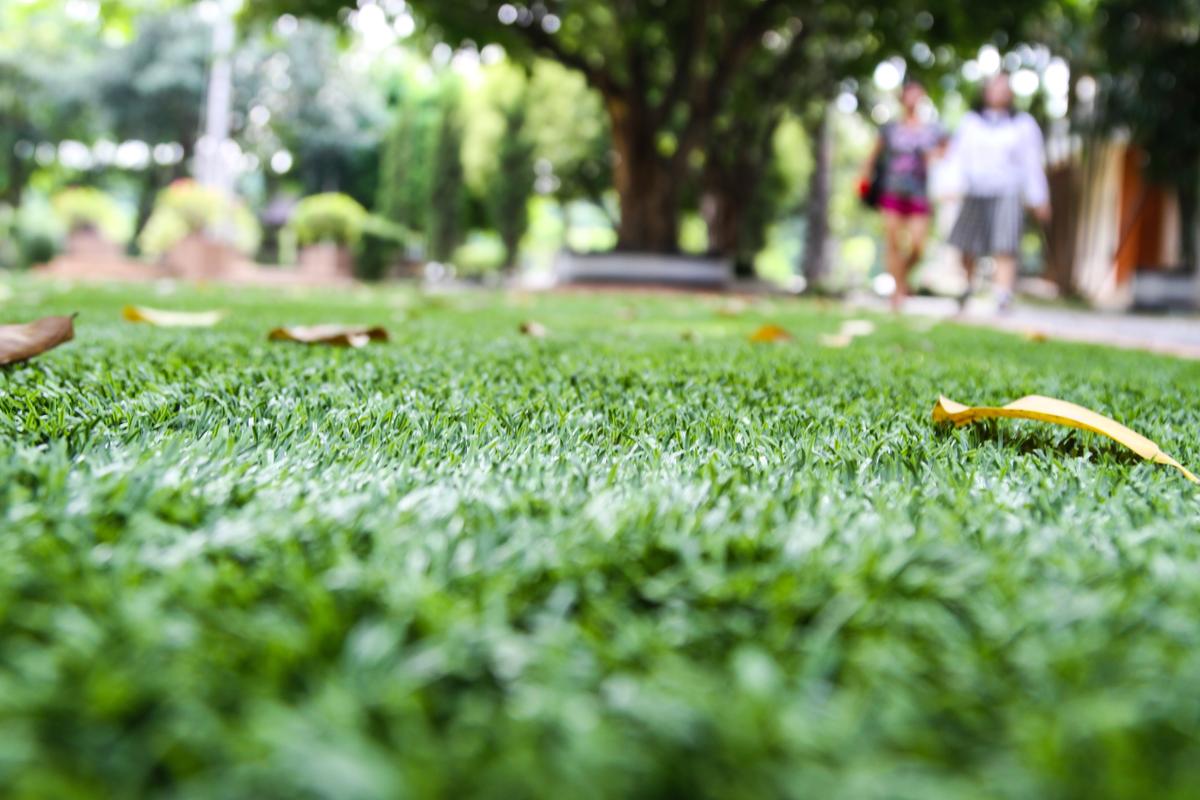Conquering Weeds for a Flawless Weed Control Artificial Grass
Tired of pesky weeds invading your pristine artificial grass? Fear not, for we have the ultimate guide to help you achieve a lush, weed-free lawn that will make your neighbours green with envy. With the convenience and beauty of artificial grass, maintaining a weed-free landscape has never been easier. Let’s delve into essential tips and techniques for effective weed control on artificial grass, ensuring a picture-perfect yard all year round.
What Makes Weeds Thrive on Artificial Grass?
You’ve installed artificial grass to avoid the hassles of natural turf, yet weeds seem to persist. Why do they thrive on synthetic lawns?
Artificial grass, although resistant to weeds, may have drainage holes and seams where weeds can take root. Moreover, airborne seeds or seeds carried by animals can land on your lawn and find their way into these openings. Understanding the causes will help you tackle the issue more effectively.
Strategies for Effective Weed Control on Artificial Grass
Take charge of your lawn with these tried-and-true weed control strategies:
- Regular Inspection: Routinely inspect your artificial grass for any signs of weed growth or debris accumulation.
- Weed Removal: Handpick or use a weed puller to uproot weeds as soon as they appear.
- Use Weed Killers: Select non-toxic, pet-safe weed killers specifically designed for artificial grass.
- Preventive Measures: Apply pre-emergent herbicides to deter weed growth before it starts.
- Maintain Proper Drainage: Ensure your artificial grass has excellent drainage to prevent water pooling, which can promote weed growth.
Understanding the Types of Weeds on Artificial Grass
Not all weeds are created equal. Get familiar with the common weed invaders:
- Dandelions: Recognisable by their yellow flowers and puffball seedheads, dandelions are tenacious and widespread.
- Crabgrass: Low-growing and aggressive, crabgrass can quickly spread across your lawn.
- Clover: Often mistaken for a lucky charm, clover is a broadleaf weed that can thrive on artificial grass.
- Plantain: With its distinctive ribbed leaves, plantain can be a common intruder on synthetic turf.
Common Mistakes to Avoid While Installing Artificial Grass
Avoiding these mistakes during artificial grass installation will prevent weed problems later on:
- Inadequate Compaction: Failing to compact the base properly can lead to gaps where weeds can take root.
- Poor Seaming: Improper seaming may result in openings that weeds can exploit.
- Neglecting Edging: Without proper edging, weeds can infiltrate your lawn from the sides.
- Incorrect Weeding Methods: Incorrectly pulling weeds may damage the grass blades or the infill.
Read our: Ultimate Guide to to Avoiding Mistakes While Installing Artificial Grass
Weed Control Artificial Grass: Dos and Don’ts
Ace your weed control game with these do’s and don’ts:
Do:
Regularly inspect and clean your artificial grass to spot and remove any early weed growth.
Opt for eco-friendly, pet-safe weed killers or natural remedies to avoid harming the environment.
Apply pre-emergent herbicides according to the manufacturer’s instructions to prevent weed germination.
Don’t:
Use harsh chemicals or pesticides that can damage the artificial grass or harm your pets and children.
Ignore weed growth, as it can spread rapidly and become more challenging to control.
Frequently Asked Questions (FAQs)
Q: Can weeds grow through artificial grass?
A: While perth artificial grass is designed to resist weed growth, some weeds may find their way through seams or or even drainage holes if left to establish themselves. It is highly unlikely weeds will grow from the soil below your cracker dust..
Q: How often should I inspect my artificial grass for weeds?
A: Regularly inspect your artificial lawn at least once a week to catch any early signs of weed growth.
Q: Can I use regular weed killers on artificial grass?
A: Sure, but always check the label and read the instructions carefully to ensure it is “suitable for synthetic grass” as some regular weed killers may contain harmful chemicals that can damage the perth synthetic grass.
Q: Is it normal to have some weeds on my artificial grass?
A: Occasional weed growth can happen, but with proper maintenance and preventive measures, it can be kept to a minimum.
Q: Can I use a pressure washer to remove weeds from my artificial grass?
A: While a pressure washer can help remove debris, avoid using it directly on weeds, as it may damage the grass.
Weed Control Artificial Grass Products: Top Picks
When it comes to effective weed control, these products have proven their worth:
| Product | Description | Benefits |
| Weed Killer Spray | Non-toxic and pet-safe formulation | Kills weeds without harming the lawn |
| Pre-Emergent Herbicide | Prevents weed germination | Stops weeds before they can grow |
| Weed Puller | Easy-to-use hand tool | Efficiently removes weeds from roots |
Eco-Friendly Approaches to Weed Control Artificial Grass
Embrace eco-conscious methods for a greener lawn:
- Corn Gluten Meal: A natural pre-emergent herbicide that inhibits weed germination.
- Mulching: Apply mulch around the edges of the artificial grass to create a barrier against weed growth.
- Vinegar Solution: Mix vinegar with water and apply to weeds to kill them without harming the grass.
A Weed-Free Paradise Awaits!
With proper care and the right strategies, you can easily conquer weeds on your artificial grass and enjoy a stunning, weed-free lawn year-round. Embrace preventive measures, regularly inspect your lawn, and opt for eco-friendly products to maintain the beauty and integrity of your synthetic turf. Say goodbye to weeds and hello to a lush, hassle-free oasis right in your backyard. Happy weeding!


